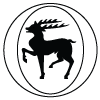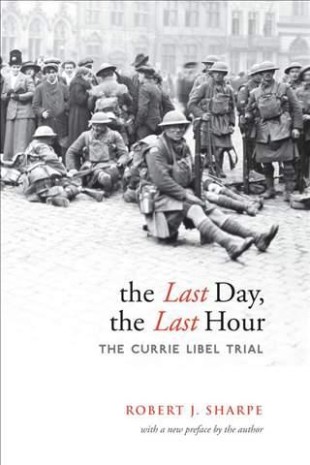by Robert J. Sharpe, Justice of the Ontario Court of Appeal. Published with the University of Toronto Press, 2009 (first edition published by Carswells, 1988).
The Osgoode Society first published Robert Sharpe’s study of the libel action launched by Sir Arthur Currie in 1988, sixty years after the case itself had captured the attention of the whole country. In the two decades since it has been our best seller, and we are reprinting it in a new edition as part of the our 30th anniversary celebrations. The story of Currie’s response to allegations that as commander of the Canadian Corps in the first world war he had recklessly risked the lives of his troops in an attempt to gain credit for himself has lost none of its appeal. This is a fascinating account of one particular trial, a book that tells two compelling stories – the military and the legal – interwoven with human frailty, vanity and pride.


